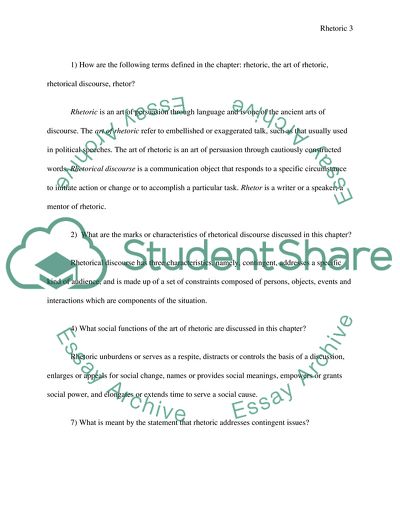Cite this document
(An Exploration of Rhetorical Discourse Assignment Example | Topics and Well Written Essays - 1250 words, n.d.)
An Exploration of Rhetorical Discourse Assignment Example | Topics and Well Written Essays - 1250 words. https://studentshare.org/philosophy/1727567-the-history-and-theory-of-rhetorics
An Exploration of Rhetorical Discourse Assignment Example | Topics and Well Written Essays - 1250 words. https://studentshare.org/philosophy/1727567-the-history-and-theory-of-rhetorics
(An Exploration of Rhetorical Discourse Assignment Example | Topics and Well Written Essays - 1250 Words)
An Exploration of Rhetorical Discourse Assignment Example | Topics and Well Written Essays - 1250 Words. https://studentshare.org/philosophy/1727567-the-history-and-theory-of-rhetorics.
An Exploration of Rhetorical Discourse Assignment Example | Topics and Well Written Essays - 1250 Words. https://studentshare.org/philosophy/1727567-the-history-and-theory-of-rhetorics.
“An Exploration of Rhetorical Discourse Assignment Example | Topics and Well Written Essays - 1250 Words”. https://studentshare.org/philosophy/1727567-the-history-and-theory-of-rhetorics.


